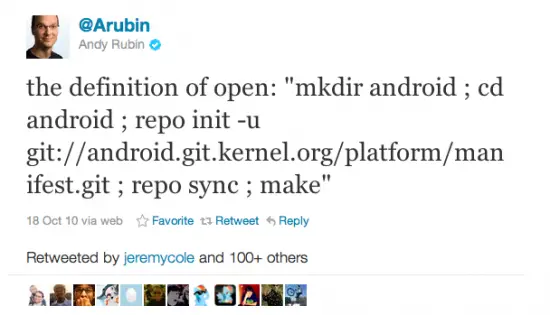Android Does Not Need Saving
Many of you might have heard about PandoDaily, a new tech blog that was launched on the 16th of January by Sarah Lacy, a former TechCrunch writer. One particular article caught my attention, primarily because of it’s title: How Google can save Android: Close it. License it. Swim in the Profits.

The writer, Farhad Manjoo, isn’t the first person to make the suggestion, and he most certainly isn’t going to be the last. Many have used the example of Amazon’s Kindle Fire and other such Android forks to suggest that Google’s strategy is back-firing. To his credit, the article doesn’t come off as an Apple fanboy mocking Android as many such posts do, and has offered some decent ideas.
But I must admit, right from the beginning the article seemed to miss the bigger picture. And that seems to be the case with all journalists, especially since Apple’s outstanding quarterly results which have put Google’s “failures” in the spotlight.
Google’s main competition isn’t Apple. It’s Facebook.
Google’s business, at this point, is advertising. And the most important resource for it’s business is information. It’s the same thing with Facebook. Google and Facebook are, as such, competing for the same pie. Apple, on the other hand, is a hardware company. It’s profits come almost entirely from the huge margins it has on all of its devices.
For Google to take on Apple in terms of profits and revenues, it has to virtually pivot itself into a consumer electronics company. Admittedly, the purchase of Motorola speeds things up a bit, but with Moto struggling it would be a long, hard struggle to reach the required level.
“Closing” Android will only make a bigger mess
This is where Manjoo gets it wrong almost entirely. While in theory it would increase Google’s earnings from Android, it’s an extremely short-sighted option.
The move would hit the wrong note with the developer community who have flocked around Android because of its open nature. Additionally, it’s going to give all those who have already (unfairly) questioned Android’s open sourced nature a chance to say “I Told You So”.
Also, the quoted amounts in Manjoo’s arguments are just plain wrong. The $25-30 amount for a Windows Phone license is what ZTE say they’re being charged. While there’s no confirmation about it, most believe the major manufacturers like Samsung and HTC pay about $15/device for a license. Considering they already pay about $5/device to Microsoft, a $10 charge from Google removes the current monetary benefit that comes with Android. And knowing MS, they’d probably reduce the amount they charge to push WP7 forward.
Who’s to say manufacturers won’t create their own forked versions of Android from the ICS code? They’ve already invested heavily in their own custom skins, they might just decide to use their current code as a base for their own operating systems, say Sense OS or TouchWiz OS.
Closing Android could actually cost Google
Manjoo quotes that Google makes $6-10 per user per year in mobile ad revenue based on a study. While I have my doubts about it, I’ll agree to it for the argument’s sake.
If closing Android results in more forks, it gives Microsoft a big opportunity to throw money at the manufacturers to put Bing as the default search engine on their devices. So not only does Android lose significant marketshare as a direct result, it ends up costing Google $6-10 per user, per year in revenue. They would need to sell as many licenses as the Bing-ed Android forks just to maintain status quo.
Additionally, we must keep in mind that mobile advertising is still in its infancy. It might not be as profitable as desktop ads right now, but more and more money is coming in as businesses shift their focus to mobile-users themselves.
The Kindle Fire has proved to be a boon for Android Tablets
As you might have read recently, Android tablets now enjoy a 39% marketshare. And a lot of the credit goes to the Kindle Fire. While it isn’t the “real” Android, it still puts a dent in the iPad’s success.
Manufacturers like Asus have also learnt their lessons, and as a price war starts, I expect to see a number of a good options in the $200-300 range this year. As a result, we could quite possibly see Android and iOS having an equal share in the tablet market by this time next year, which would be quite a feat considering where we were just a few months ago.
So what do you think: does Google really need to “save Android”? And either way, how do you feel about Manjoo’s suggestions to close off our beloved open OS?
